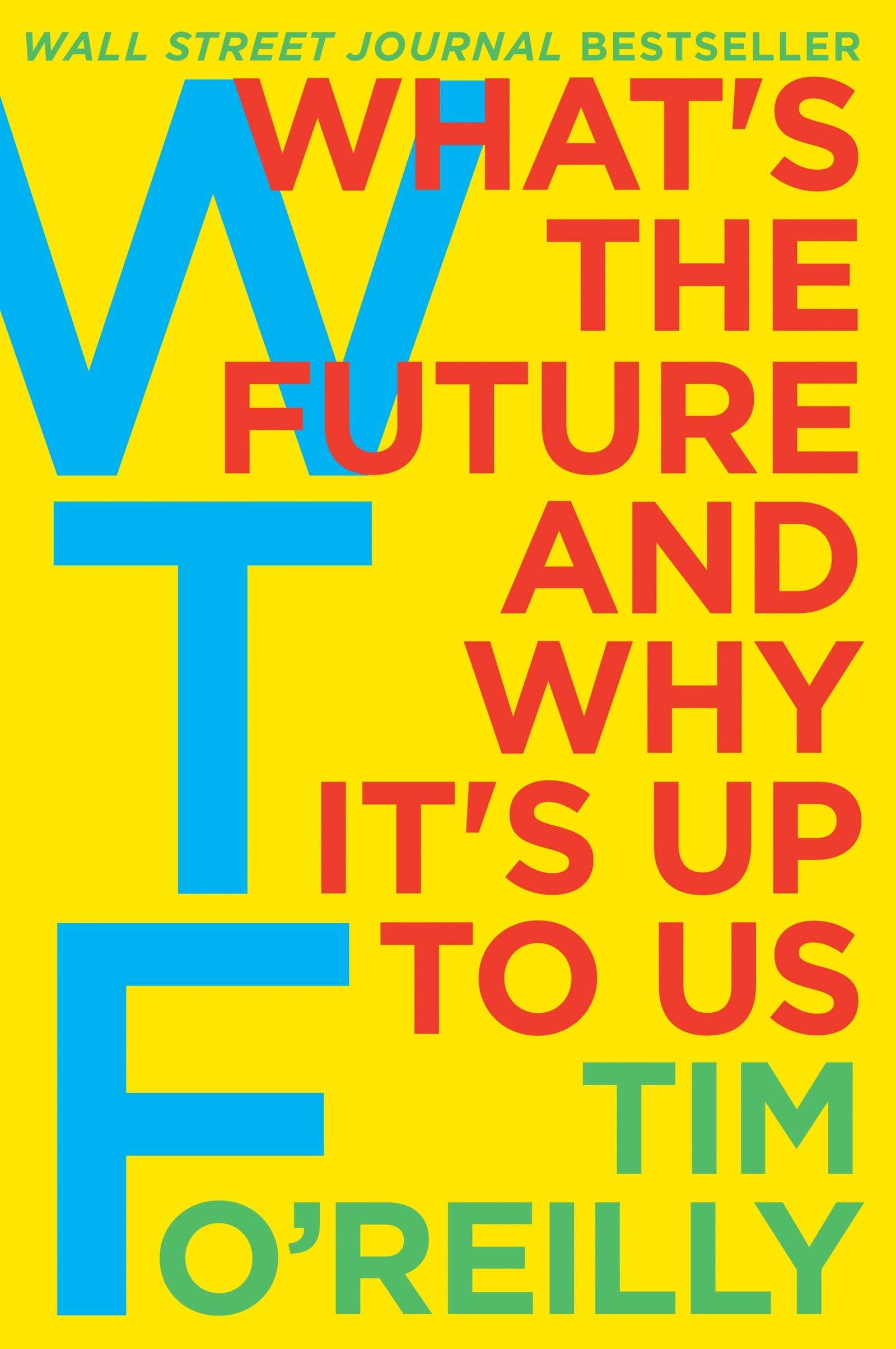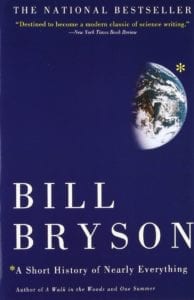WTF?
Reason Book was Chosen:
The 2017 reading list started out with a future-predicting book by Kevin Kelly. I like reading those types of books. It may not come to be how predicted, but at least it makes you think. I enjoyed Tim O'Reilly's interview on the Tim Ferriss podcast and it sparked my interest in wanting to read his book.My Thoughts
WTF was a pleasurable surprise. I expected author Tim O’Reilly to impress me with his technical acumen and predict precise future trends and ideas. That’s what futurists do, right? They make predictions about the future, and if they are lucky, those predictions come through, proving the futurist a genius.
WTF is not a book of predictions about the future. In fact, the book starts in the not too distant past and recounts the history of our current technological computer age. But even before he does that, he identifies that we all have mental models of the future. Other books on the Books of Titans list this year, namely Thinking, Fast and Slow, call these models “heuristics.” O’Reilly describes how the future will mostly live outside of our existing mental models, much like most of the transformative technology will come from upstarts and not the IBMs of the world. He then provides ways that you, the reader, can begin to enhance your mental model of the world so that you are better prepared for the future.
This book is about your mindset as opposed to laying out specific predictions for the future. That’s much more powerful. As we’ve seen in books like Fooled by Randomness, those predicting the future are usually incorrect more often than if they had just randomly guessed.
O’Reilly then goes on to provide mindset alteration suggestions for those in business, media, government, and education. Each chapter is stock full of tremendously insightful information. Here’s one example:
“These programs (software programs & algorithms) are workers, and the programmers who create them are their managers.”
O’Reilly was contrasting this 21st scenery mindset with that of the 20th century industrial workers pushing out physical goods. Those creating algorithms are more in line of the quote above. Slight difference, but very important in terms of thinking differently about the jobs of the future.
Something else that stuck out to me about this book is that I would often form objections in my head when O’Reilly was discussing a particular topic. A few pages later, that exact objection would be addressed. That does not happen very often when I’m reading a book like this.
Overall, this is a very important book irrespective of your industry. O’Reilly covers it all and gives you the mind tools to be prepared for whatever comes in the future.
I listened to this book on Audible.com.



